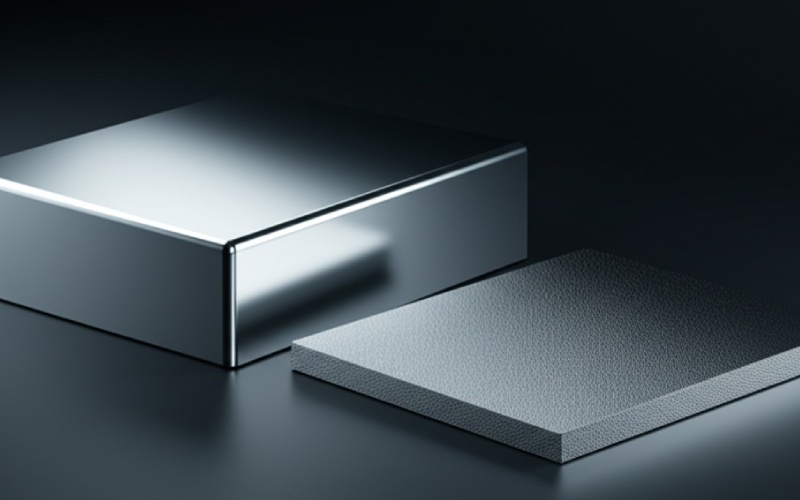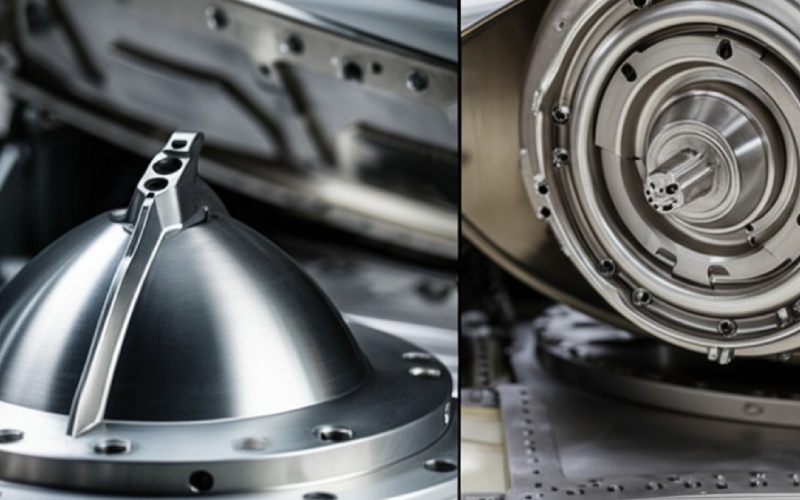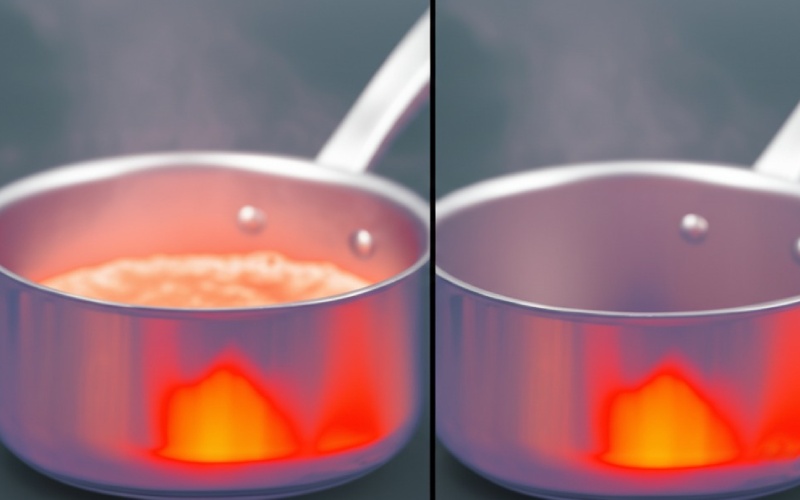Lassen Sie sich von Istar mit unserer Erfahrung und unserem Know-how beim Start Ihres Projekts unterstützen!
Laden Sie Ihre Designdateien und Produktionsanforderungen hoch und wir melden uns innerhalb von 30 Minuten bei Ihnen!

Should I use titanium or aluminum? Both are great materials. But they are not the same. Picking the wrong one can waste your time and money. In this post, I will show you the main differences between aluminum and titanium. We will look at how strong they are, how much they weigh, how much they cost, and other things. When you finish reading, you will know for sure which metal is the right pick for what you need to do.
Both titanium and aluminum are metals that are not heavy. But that is where they stop being alike in many ways. Aluminum is the most-found metal on Earth that is not iron. You can find it everywhere. Titanium is not as common. It is famous for being very strong. The special features of each metal make them very useful for different jobs.
It is very important to know what titanium and aluminum are like. One is a metal used for many everyday jobs. We see it all the time. The other is a special metal for tough jobs. Choosing between aluminum and titanium is more than just picking a metal. It is like picking the right tool for your work. If you pick the wrong one, your final product could be too heavy. It could be too weak. It might cost too much, or it could break too soon. We want to stop that from happening.

People ask me about strength and weight a lot. This is where it gets fun. If you just look at weight, aluminum is the lighter metal. Aluminum has a density of about 2.7 g/cm³. Titanium has a density of 4.5 g/cm³. Density tells you how heavy something is for its size. This means if you have a block of titanium and a block of aluminum of the same size, the titanium block will be heavier. So, if you only need the lightest metal you can get, aluminum is your answer. Titanium is heavier than aluminum.
But that is not all you need to know. We must also talk about how strong a metal is for its weight. This is called the strength-to-weight ratio. And this is where titanium is a real winner. Most of the time, titanium is stronger than aluminum. For how much it weighs, titanium is one of the strongest metals there is. It has a very high tensile strength, which means it is hard to pull apart. Because it is so strong and also light, it is perfect for making parts for airplanes and spaceships in the aerospace field. A titanium alloy is much stronger than an aluminum alloy. If you need something with high strength that will last a long time, the mix of weight and strength in titanium is very good. This is why people use it for jobs where making things lighter is very important.
Corrosion is a big problem for many metals. It is like rust. When it comes to fighting rust, both titanium and aluminum are very good. But one is a little better. Both metals grow a thin, strong skin when air touches them. This skin is called an oxide layer. This protective oxide layer is like a shield. It keeps air and water away from the metal inside. This gives both metals a great ability to fight off corrosion.
But titanium’s ability to stop corrosion is even better. It is almost as good at fighting corrosion as platinum. This makes titanium the perfect choice for tough places. For example, think about parts on a ship that sit in salty seawater all day. Or think about a medical implant that goes inside a person’s body. Its amazing resistance to corrosion means it will last for a very, very long time.
Aluminum is also very good at fighting corrosion. It has its own protective oxide layer. For most things you use every day, its protection is good enough. But some chemicals or very salty places can harm it. So, while aluminum is good, titanium is even better. This better ability to fight corrosion is a big reason why people choose one over the other in the titanium vs aluminum question.
Heat can change how a metal acts. A metal’s melting point tells us how hot it can get before it turns to liquid. In this area, the difference between aluminum and titanium is very big. Titanium has a very high melting point. It melts at about 3,034°F (1,668°C). That is extremely hot.
Aluminum, however, has a much lower melting point. It melts at about 1,221°F (660°C). This large difference shows that titanium is the best choice by far for jobs in very hot places. This is why you will find titanium and titanium alloys inside jet engines and spaceships. The metal can handle the great heat and not lose its strength. Aluminum would just become too soft or melt in those spots. But, aluminum is great for making things like heat exchangers and heat sinks because it moves heat easily.
To make a smart choice, you need to look at the good and bad points. I think a simple chart helps make these advantages and disadvantages easy to see. Let’s list the main points for each metal.
| Point | Titan | Aluminium |
|---|---|---|
| Stärke | Very strong for its weight. | Good strength, but not as strong as titanium. |
| Gewicht | Heavier than aluminum for the same size piece. | Very light, not very dense. |
| Kosten | Costs a lot of money. | Costs much less, a good value. |
| Rostbeständigkeit | Amazing, even in salt water. | Very good, but can get damaged in some cases. |
| Working with It | Hard to cut and put together. | Easy to cut, shape, and put together. |
| Hitzebeständigkeit | High melting point. | Low melting point. |
Looking at these advantages and disadvantages helps you see what you gain and what you give up. If your job needs the very best results and money is not a problem, titanium is a great pick. If you need a good, lightweight, and low-cost metal for your project, aluminum is usually the better choice. It can be used in many ways.
Your choice really depends on what is most important to you. Is it the best quality possible? Or is it a good mix of quality and cost? Thinking about these good and bad points will help you find the right material for your project.
When we build something from metal, we have to cut it, shape it, and join pieces. This is called working with the metal. From what I’ve seen, aluminum is much simpler to work with. Because aluminum is a softer kind of metal, it is simple to cut and bend into many shapes. It is very easy to work with aluminum.
This is important because it saves time and money. Workshops do not need special tools to work with it. Putting aluminum pieces together with welding is also a normal and well-known job. All in all, if you are making something that has a lot of parts, it is often quicker and cheaper to use aluminum.
Titanium is a totally different case. It is a very hard metal. This makes it hard to cut and shape. You need special tools, you have to work slower, and you need lots of liquid to keep it cool. It makes tools get old fast. This hard work adds to the final price of a part made from titanium. The whole process of making and working with titanium is more difficult and costs more than it does for aluminum.
You might be surprised at how much you see these two metals. Aluminum is one of the most-used metals on the planet. Because aluminum is strong and light, aluminum is used for so many things. Just look at soda cans, kitchen foil, and the frames of windows. Many car bodies and parts for engines are made from an aluminum alloy. This is done to save weight and make cars use less gas. You might even have cookware made from this lightweight metal. Aluminum has many, many uses.
Titanium costs a lot more and has special features. Because of this, it is used for more special or expensive uses. The business of making planes and rockets, the aerospace industry, uses a lot of titanium. It is used for airplane frames and engine parts. Its high strength and low weight are perfect for things that fly. Titanium is also used for top-quality sports gear, like fancy bike frames and golf clubs. A very important use is for medical implants. Its great resistance to corrosion and the fact that the human body accepts it make it a good choice for medical parts. A hip joint or a tooth implant is often made of a titanium alloy.
For most of us, cost is very important. When we talk about price, there is an easy choice. Aluminum costs much, much less than titanium. The raw metal for aluminum is cheaper to get from the earth. The process of producing aluminum, called the Hall–Héroult process, also works very well without waste. This method for producing aluminum has been used for a long time. It helps keep the price down.
The cost of titanium is a lot higher. The steps to get titanium from the ground are difficult and use a lot of power. This fact, plus how hard it is to cut and shape, makes the final price of a titanium part much higher than a similar aluminum part. So, if you do not have a lot of money to spend, aluminum wins in the aluminum vs titanium race. Aluminum is a good value for the money for a very large number of projects.

After looking at all of this, which metal is better? The real answer is: it depends on your project. There is no single metal that is “the best” for every single thing. The best choice is the one that fits what you need for quality, how long it will last, and how much you can spend.
If you need the very best results, titanium gives you that. For jobs where high strength, low density, and amazing resistance to corrosion are needed most, titanium is the best. This is true for aerospace, top-level sports items, and medical implants. This makes titanium the choice for jobs where weight is a very important factor and you need the best strength. But for a very large number of jobs, aluminum is the smart choice. It gives a wonderful mix of being light, strong enough for most tasks, and easy on your wallet. It is a metal you can use for many things that does the job well without a high price tag.
Here is one last piece of advice I want to give you. You will almost never use pure titanium or pure aluminum. Instead, you will use something called an alloy. An alloy is a metal that has been mixed with other things to make it better. Adding a small amount of another metal can change it. For example, it can make it stronger or easier to weld together. Both aluminum and titanium are almost always used as an alloy.
For example, when you look at aluminum alloys, you might see the number 6061 for bike frames or 7075 for aerospace parts. Each number stands for a different recipe with different kinds of strength. The same is true for titanium alloys. The one used most often is Grade 5, also called Ti-6Al-4V. The tensile strength of titanium alloys can be very, very high. Picking the right alloy is just as important as picking the right metal. The alloy decides the final strength and how long-lasting your part will be. Always look to see which alloy is suggested for the job you are doing. This will help you get the best results.